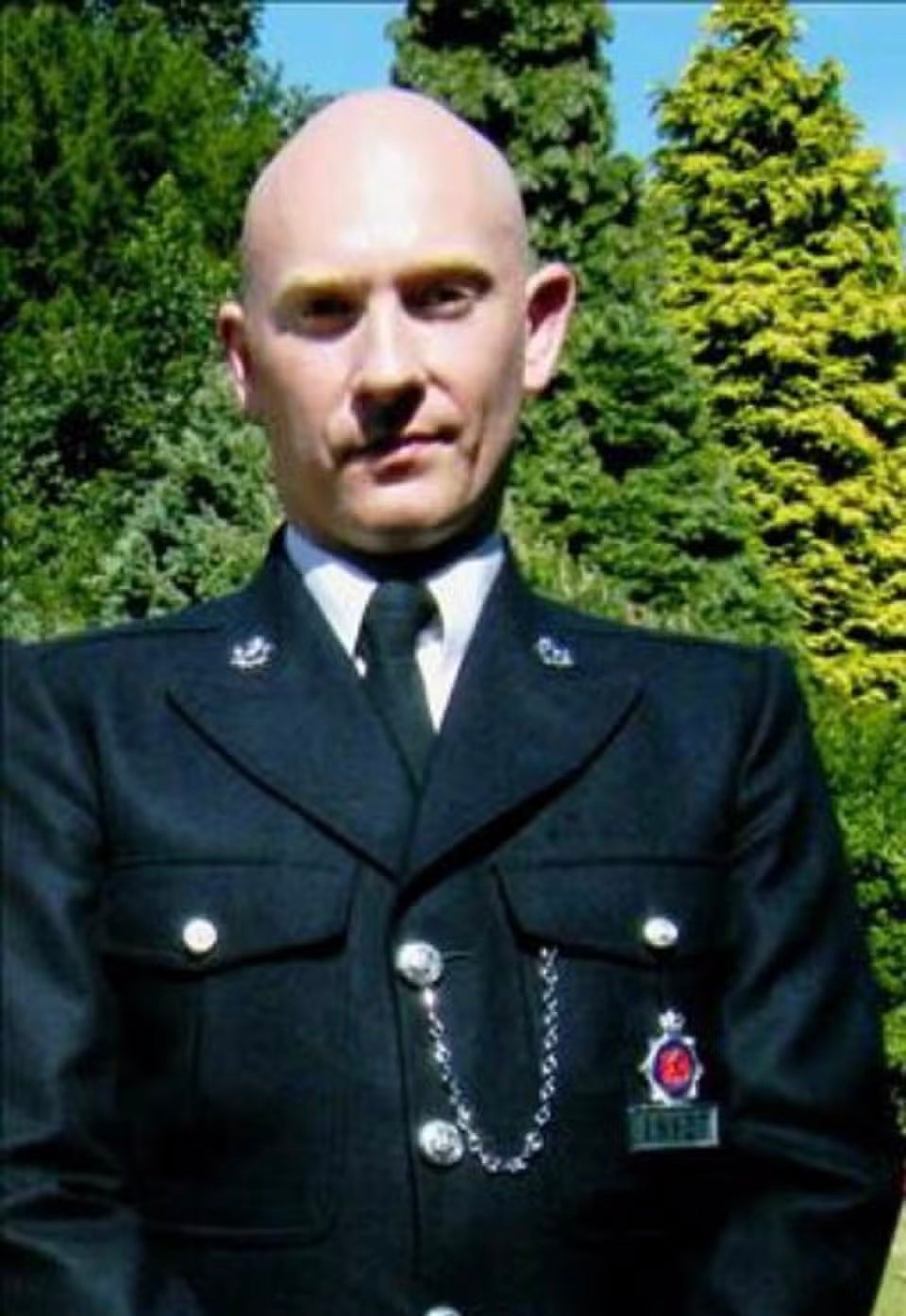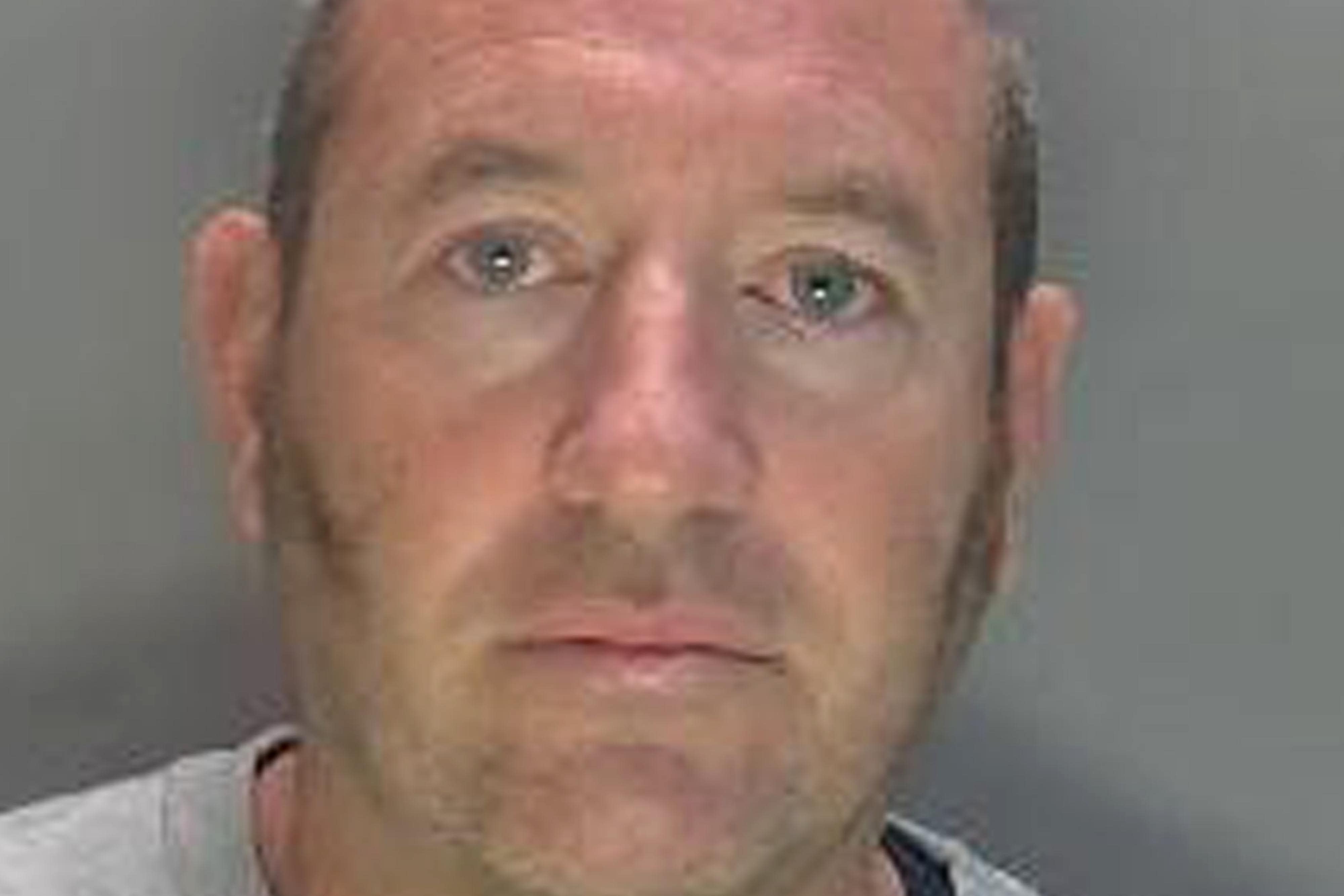My battle to bring a predatory Met Police officer from the same unit as Wayne Couzens to justice
Former PC Phil Hunter engaged in a ‘pattern of sexually predatory behaviour’, preying on two vulnerable women before he was finally brought to justice. Last week saw the conclusion of one victim’s five-year fight to be heard – she tells Zoë Beaty her story


It had been 1,920 days of waiting when the verdict came through. It arrived five years after Jasmine* first reported PC Phil Hunter; four years after the Metropolitan Police finally took her complaint seriously – and seven years after her ordeal began.
The conclusion came quietly, without ceremony. Last Friday, Jasmine sat in a small, sparsely populated room to hear that justice had finally come: the hearing found that Hunter, 60, had committed gross misconduct while in the Met – he had groomed Jasmine, the panel found, after being called to her home for a welfare check, and while she was extremely vulnerable. Over the course of five years, he also sent her inappropriate text messages and tried to initiate a sexual relationship with her.
Hunter, a former soldier who at one point worked in the same parliamentary protection unit as Wayne Couzens and David Carrick, failed to attend the hearing and denied all the allegations against him.
He had previously been found guilty of gross misconduct for entering into a sexual relationship with a vulnerable woman known as “X”, whom he met just days before Jasmine, in 2017. The woman was suicidal and had tried to take her own life.
The PC, who was married with two children, retired from the force before he could be dismissed following his first hearing in July 2019 – but not before he engaged in “a pattern of sexually predatory behaviour”, barrister Thom Dyke, representing the Met, told the misconduct hearing on Thursday.
Yet, had Jasmine not relentlessly campaigned to bring Hunter to justice, he would have been able to apply to another force to work as a police officer from 2025. Despite the serious nature of the offence, being found to have committed gross misconduct of this kind only currently bars officers from actively working for five years. Jasmine, who is using a pseudonym to protect her anonymity, is now subject to “special protection, including a 24/7 tracker on me”, she says.
Initially, the Met refused to hold a hearing, claiming that Jasmine’s case was not in the public interest since Hunter had already left the force. Jasmine appealed and, in 2023, a scathing report from the Independent Office for Police Conduct (IOPC) found that investigators had violated policing guidance.
Jasmine’s five-year battle to be heard reads like “a playbook to make justice impossible for women victimised by the police”, she says. Hunter was allowed to act with impunity because “he targeted vulnerable women in crisis and knew they would make unreliable witnesses, unable to withstand the brutal complaints process”.
She supplied The Independent with a letter showing that, four months after her complaint was raised, police requested and obtained her medical records and contacted her GP citing concerns over a “mental health crisis”. Jasmine maintains she was not suffering from mental illness at the time.

In the letter, sent by the Directorate of Professional Standards (DPS), police wrote that Jasmine was “struggling to move her life forward rather than focusing on both the failures of the police and the alleged crimes against her. [Jasmine’s] recollection of the events or contact with police appears at times not to be an accurate reflection – it is not known if this is an intentional misrepresentation or her perception of events/conversations.”
Meanwhile, Hunter was allowed to get a job as a black cab driver and began working in central London – his record of gross misconduct, despite its sexual nature, does not appear on DBS checks.
“I thought he was my friend,” Jasmine told me over the phone prior to the two-day hearing last week. She first encountered Hunter after he and another female officer knocked on her door in August 2017. Jasmine had reported being subjected to disturbing calls, text messages and other behaviours following a breakup, and was going through a particularly difficult time.
“Each time I reported something, they just closed the case,” she said. She became frustrated and upset, which prompted Hunter’s visit. “He talked a lot of sense,” she said. “And he calmed me down. Then, when he was leaving, he wrapped his arms around me and said, ‘You’re so lovely. You know I’m going to look after you.’”
Hunter gave Jasmine his personal phone number and told her he was going to take her out for coffee, she told me. “He said: ‘I’m now your point of contact.’”
“Over the next three months or so, he would message me constantly,” explains Jasmine. “He would phone and chat and say things to me like ‘Don’t believe any other police officers. I’m the only one that you can trust’ – all sorts of things like that.”
Jasmine’s case raises pertinent questions, not only about how predatory behaviour within the Met persists, but also about the way in which cases of misconduct are subsequently handled
She said in her statement to police: “He told me that my family and friends could not help me and that I should no longer see or contact them. He was taking care of me, showing empathy, support, and how to speak at an interview as a victim and witness.”
Hunter would go on to try to convince Jasmine to file false police reports and to isolate her from her friends and family. “He told me, ‘You can’t trust them. You can only trust me.’ Now I see it very much as grooming behaviour, but at the time I didn’t. He started sending me kissing emojis or an ‘x’ at the end of texts – I thought he was my friend,” she repeats.
The inappropriate relationship was brought to police attention in 2019, when an investigation into Hunter’s gross misconduct with his first victim, X, began. Hunter had entered into a sexual relationship with X just four weeks after responding to a call at her house, where she was “at significant risk” of suicide.
In the judgment from his gross misconduct hearing, the other attending officer that night described Hunter as telling X: “You have so much to live for, you are beautiful.”
One month later, in September 2017, Hunter sent X an image of his penis, and asked her to send a picture of herself, which she refused to do.
When X found out that Hunter was married, though he claimed to be separated in October 2017, she tried to end their relationship – which he was open about to colleagues, but denied they had met while he was on duty. Those lies were exposed to police the following month, when X made another attempt on her life and Hunter, along with another officer, was in attendance. He later admitted that he had met X a few months earlier while conducting a welfare check.

At the conclusion of Jasmine’s hearing last Friday, identical texts that Hunter sent to both of his victims were read out; in Jasmine’s case, there were more than 70 pages of texts. It was when he made contact with Jasmine a second time, a year after his first attempt to engage her, that she made the decision to report him. “At one point I didn’t hear from him for months, maybe a year,” she tells me. “But then he got in touch again out of the blue.
“The conversation was much more sexualised – much more ‘You’re beautiful, we’re going to be good together.’ But the thing he hadn’t banked on was [that] when he first started contacting me I was extremely vulnerable, both as a victim of crime and in my own personal circumstances. But by the second time, I was not. And I didn’t hesitate to report him straight to them.”
“Had he been a serving officer, he would have been sacked without notice,” Jasmine told me shortly after Friday’s hearing. “Now I want to know why it has taken five long, distressing years to get this far.”
She says that she is a prime example of why many women cannot get the justice they deserve when they are harmed by police officers. “Here is the playbook,” she says in a letter she sent to The Independent on Friday. “Take away their phone. Don’t believe them, despite there being more than one victim. Say you think [they are] overreacting. Exhaust them.
“Wipe your hands of their experience again and again. Because what do I know? I’m just a vulnerable woman. So many times I have thought I couldn’t proceed with this constant battle.”
Jasmine says that she “persisted” with the help of Baroness Casey and the support of her loyal friends, but believes that many other women couldn’t have done so. “I often wonder how many more of us there are,” she says. “I met somebody recently who knew Hunter when he was serving, and he said to me that ‘he was known for it’.”

She asked why he didn’t report the behaviour. “The answer was simple – ‘It’s not what we do.’”
Commander Katie Lilburn, who leads the Met’s DPS, said in a statement issued after the verdict: “I want to be clear, it is unacceptable for any officer to abuse their position of trust and I would like to acknowledge and apologise for the distress this has caused.” She added: “The commissioner has been clear he wants timeliness in the misconduct system improved, and we are committed to doing all we can to ensure cases are concluded as swiftly and efficiently as possible.”
Hunter has now been dealt his hand – and, finally, will no longer be able to apply to work in the police force. But Jasmine’s case raises pertinent questions, not only about how predatory behaviour within the Met persists, but also about the way in which cases of misconduct are subsequently handled.
On Friday, Jasmine’s case was heard without fanfare – in a small back room in Palestra House in Southwark, London. In the end, the judgment was almost as botched as the five-year lead-up: every time the chair began to read the findings, the sound cut out.
A small handful of media reporters sat quietly at the back. They had applied to attend thanks to Jasmine’s vocal supporter, Jamie Klingler, the founder of campaign group Reclaim These Streets, who organised the now infamous vigil for Sarah Everard in 2020. The day before, despite Jasmine’s efforts and the advocacy of a barrister, the evidence she had given was not read out – she has since “condemned” the process that meant that her “words could not be heard”.
At an early point during the complaints process, Jasmine says, a police officer who was interviewing her made a comment that “sticks with me to this day”. “They said that police officers who are sexual predators exist only in the mind of Daily Mail readers,” she explains. Last week, she proved once more that this is very much not the case.
*Name has been changed
Rape Crisis offers support for those affected by rape and sexual abuse. You can call them on 0808 802 9999 in England and Wales, 0808 801 0302 in Scotland, and 0800 0246 991 in Northern Ireland, or visit their website at www.rapecrisis.org.uk. If you are in the US, you can call Rainn on 800-656-HOPE (4673)
Subscribe to Independent Premium to bookmark this article
Want to bookmark your favourite articles and stories to read or reference later? Start your Independent Premium subscription today.


